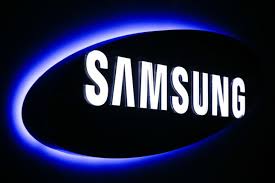
With the aim of reducing its reliance on the memory chip market which has been volatile in recent times, an investment of $116 billion is being made by Samsung Electronics Co Ltd in the area of non-memory chips till 2030. It also wants to invest for the development of chips that are used to power self-driving cars and AI-enabled devices.
This investment and shift of focus would obviously pit the South Korean firm in direct rivalry against the bigger players in the industry - Taiwan's TSMC in contract chip manufacturing and San Diego-based Qualcomm Inc in mobile processing chips. This change in focus has been driven by sharp drop in demand in the memory chip market after years of bumper sale and growth.
More powerful chips are being demand for tech areas such as fifth-generation (5G) mobile networks, connected cars and artificial intelligence (AI) which has resulted in a race to develop and manufacture such products among the global semiconductor makers.
Acquisition of Israeli chip designer Mellanox Technologies Ltd for US$6.8 billion was announced by U.S. chip supplier Nvidia Corp in March, betting higher against rival Intel Corp for the deal. It is expected that the deal would help Nvidia to increase presence in data centre and AI sectors.
Out of the 133 trillion won ($116 billion) that Samsung plans to invest, about 73 trillion won would be made in domestic R&D while 60 trillion won would be made for production infrastructure, said the company which has primarily depended on organic investment for the expansion of its chip business.
"The investment plan is expected to help the company to reach its goal of becoming the world leader in not only memory semiconductors but also logic chips by 2030," Samsung said in a statement.
According to analysts typically, it memory chips business accounts for more than half of Samsung’s total capital expenditure, even though the company does not disclose break up of its investment in the semiconductor business.
The company expended about four-fifths of a budget 29.4 trillion won in capital expenditure for the semiconductor division in 2018. This division also accounted for 96 percent of the operation's profit for the company in the same period.
.
"Samsung appears to be aggressive on the non-memory side given the size of the spending, but it is too early to tell whether this long-term plan will work out because it depends a lot on the demand situation and market conditions," said senior analyst Song Myung-sup at HI Investment & Securities.
This shift of focus by Samsung also assumes importance because its one time core business and largest earning generator of smartphones business has been facing challenges to growth. As recently as this week, Samsung had to recall its latest foldable phones distributed among reviewers following complaints of cracking of the screen. It also announced in indefinite delay in the launch of the newest phones in the US scheduled for April 26.
The company said that about 15,000 jobs would be created by the investment in the chip business.
(Source:www.channelnewsasia.com)
This investment and shift of focus would obviously pit the South Korean firm in direct rivalry against the bigger players in the industry - Taiwan's TSMC in contract chip manufacturing and San Diego-based Qualcomm Inc in mobile processing chips. This change in focus has been driven by sharp drop in demand in the memory chip market after years of bumper sale and growth.
More powerful chips are being demand for tech areas such as fifth-generation (5G) mobile networks, connected cars and artificial intelligence (AI) which has resulted in a race to develop and manufacture such products among the global semiconductor makers.
Acquisition of Israeli chip designer Mellanox Technologies Ltd for US$6.8 billion was announced by U.S. chip supplier Nvidia Corp in March, betting higher against rival Intel Corp for the deal. It is expected that the deal would help Nvidia to increase presence in data centre and AI sectors.
Out of the 133 trillion won ($116 billion) that Samsung plans to invest, about 73 trillion won would be made in domestic R&D while 60 trillion won would be made for production infrastructure, said the company which has primarily depended on organic investment for the expansion of its chip business.
"The investment plan is expected to help the company to reach its goal of becoming the world leader in not only memory semiconductors but also logic chips by 2030," Samsung said in a statement.
According to analysts typically, it memory chips business accounts for more than half of Samsung’s total capital expenditure, even though the company does not disclose break up of its investment in the semiconductor business.
The company expended about four-fifths of a budget 29.4 trillion won in capital expenditure for the semiconductor division in 2018. This division also accounted for 96 percent of the operation's profit for the company in the same period.
.
"Samsung appears to be aggressive on the non-memory side given the size of the spending, but it is too early to tell whether this long-term plan will work out because it depends a lot on the demand situation and market conditions," said senior analyst Song Myung-sup at HI Investment & Securities.
This shift of focus by Samsung also assumes importance because its one time core business and largest earning generator of smartphones business has been facing challenges to growth. As recently as this week, Samsung had to recall its latest foldable phones distributed among reviewers following complaints of cracking of the screen. It also announced in indefinite delay in the launch of the newest phones in the US scheduled for April 26.
The company said that about 15,000 jobs would be created by the investment in the chip business.
(Source:www.channelnewsasia.com)














